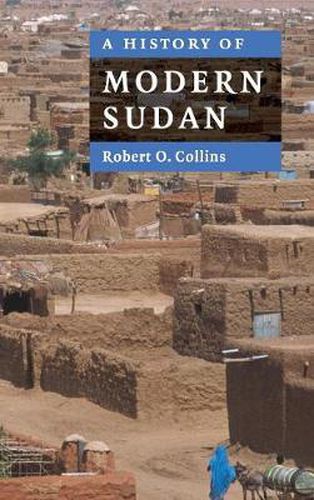Readings Newsletter
Become a Readings Member to make your shopping experience even easier.
Sign in or sign up for free!
You’re not far away from qualifying for FREE standard shipping within Australia
You’ve qualified for FREE standard shipping within Australia
The cart is loading…






Sudan’s modern history has been consumed by revolution and civil war. The country attracted international attention in the 1990s as a breeding ground of Islamist terrorism and recently tensions between the prosperous centre and the periphery, between north and south, have exploded in Darfur. In his latest book, Robert Collins, a frequent visitor and veteran scholar of the region, traces Sudan’s history across two hundred years to show how many of the tragedies of today have been planted in its past. The story begins with the conquest of Muhammad ‘Ali in 1821, and moves through the Anglo-Egyptian condominium to independence in 1956. It then focuses on Sudanese rule in the post-independence years when the fragile democracy established by the British collapsed under sectarian strife. It is these religious and ethnic divides, the author contends, in conjunction with failed leadership, which have prolonged and sustained the conflict in Sudan.
$9.00 standard shipping within Australia
FREE standard shipping within Australia for orders over $100.00
Express & International shipping calculated at checkout
Sudan’s modern history has been consumed by revolution and civil war. The country attracted international attention in the 1990s as a breeding ground of Islamist terrorism and recently tensions between the prosperous centre and the periphery, between north and south, have exploded in Darfur. In his latest book, Robert Collins, a frequent visitor and veteran scholar of the region, traces Sudan’s history across two hundred years to show how many of the tragedies of today have been planted in its past. The story begins with the conquest of Muhammad ‘Ali in 1821, and moves through the Anglo-Egyptian condominium to independence in 1956. It then focuses on Sudanese rule in the post-independence years when the fragile democracy established by the British collapsed under sectarian strife. It is these religious and ethnic divides, the author contends, in conjunction with failed leadership, which have prolonged and sustained the conflict in Sudan.